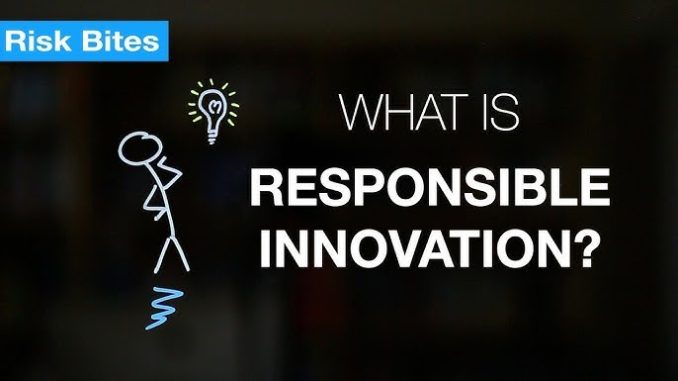
Innovation has long been celebrated as the engine of progress. It fuels growth, transforms industries, and redefines what’s possible. But as the pace of innovation accelerates, so does the need for ethical reflection. The mantra of “move fast and break things” may have once captured the spirit of disruption, but it increasingly reveals a blind spot: the consequences of unchecked advancement. Responsibility must come first. The ethics of innovation are not a constraint—they are a compass. They guide decisions, shape impact, and ensure that progress serves people, not just profit.
At its core, ethical innovation begins with intention. It asks not only what can be done, but what should be done. This distinction is critical in a landscape where technology can outpace regulation and where the implications of new products or services are not always immediately clear. Consider the development of facial recognition software. The technology itself is impressive, capable of streamlining security and enhancing convenience. But without thoughtful guardrails, it can also enable surveillance, infringe on privacy, and reinforce bias. Innovators must ask hard questions early: Who benefits? Who might be harmed? What safeguards are in place? These questions don’t slow innovation—they strengthen it.
Responsibility also means transparency. When companies innovate, they must communicate openly about how their technologies work, what data they collect, and how decisions are made. This is especially important in areas like artificial intelligence, where algorithms can influence hiring, lending, and healthcare outcomes. If users don’t understand how a system reaches its conclusions, trust erodes. Ethical innovation demands clarity—not just in technical documentation, but in everyday language that empowers users to make informed choices. Transparency builds accountability, and accountability builds trust.
Another dimension of ethical innovation is inclusivity. Too often, products are designed for a narrow audience, overlooking the needs and experiences of marginalized groups. This can lead to unintended consequences, from inaccessible interfaces to biased outcomes. A human-centric approach to innovation involves diverse voices from the start. It means engaging with communities, testing assumptions, and designing with empathy. A fintech app that includes multilingual support and considers varying levels of digital literacy is not just more ethical—it’s more effective. Inclusivity isn’t a feature—it’s a foundation.
The environmental impact of innovation also deserves scrutiny. New technologies often come with hidden costs, from energy consumption to resource extraction. Ethical innovators consider the full lifecycle of their products, exploring sustainable materials, energy-efficient processes, and circular models. A company developing smart devices might rethink packaging, optimize battery life, or offer repair services to extend product use. These choices reflect a commitment to stewardship, recognizing that innovation should not come at the expense of the planet. Responsibility means thinking long-term, not just about market share but about legacy.
Ethical innovation also involves humility. No matter how well-intentioned a product may be, it will have limitations and unintended effects. Innovators must be willing to listen, learn, and adapt. This means creating feedback loops, engaging with critics, and being open to change. A social media platform that introduces a new feature might monitor its impact on user behavior and mental health, adjusting based on real-world outcomes. Humility allows innovation to evolve responsibly, grounded in reality rather than idealism.
Leadership plays a pivotal role in embedding ethics into innovation. When executives prioritize responsibility, it sets the tone for the entire organization. It influences hiring, product development, and strategic planning. Leaders must champion ethical frameworks, support cross-functional dialogue, and ensure that values are not just stated but practiced. A company that integrates ethics into its innovation process—from ideation to launch—creates a culture where doing the right thing is not an afterthought but a core principle. That culture becomes a competitive advantage, attracting talent, partners, and customers who value integrity.
Ultimately, the ethics of innovation are about honoring the human impact of progress. It’s about recognizing that every new product, service, or system touches lives and shapes society. Responsibility first means leading with empathy, acting with integrity, and designing with care. It’s not a limitation—it’s a commitment to excellence. When innovation is guided by ethics, it becomes not only smarter but wiser. It builds trust, deepens impact, and creates value that endures. And in a world hungry for progress, that kind of innovation is not just necessary—it’s transformative.